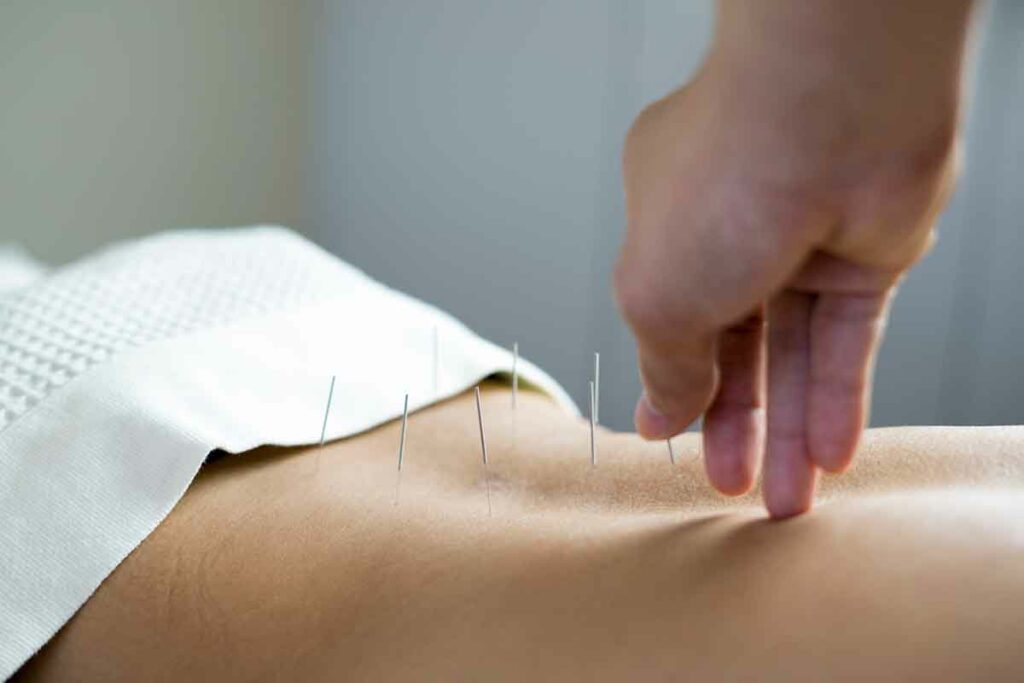Entering the field of healthcare can be a fulfilling journey, especially if you’re intrigued by herbal treatments and alternative healing methods. Consider the role of an acupuncturist, a healthcare professional dedicated to planning and administering treatments using needles and other tools to alleviate pain, address illnesses, and relieve stress in patients. As this profession demands advanced knowledge, proper education, training, and skills are essential. Let’s explore what it means to be an acupuncturist, their responsibilities, and the steps to embark on this rewarding career.
Who is an acupuncturist?
An acupuncturist is a healthcare professional specializing in holistic treatments rooted in ancient Chinese practices. By strategically inserting sterile needles into specific areas of the body, they alleviate pain and address various psychological and physical issues. Many patients also turn to acupuncture for stress relief.
What does an acupuncturist do?
Working closely with patients, acupuncturists diagnose illnesses, injuries, or conditions, developing tailored treatment plans based on individual needs and medical history. Beyond needle treatments, acupuncturists often leverage advanced knowledge in herbal treatments and alternative medicines, ensuring a comprehensive approach to patient care.
Common job duties of an acupuncturist include:
- Using needles and alternative tools for treatments
- Creating herbal treatments
- Collaborating with patients for diagnoses and treatment plans
- Reviewing medical records for accurate diagnoses
- Monitoring patient progress through follow-up appointments
- Staying updated on regulations for safe practices
How long does it take to become an acupuncturist?
The journey to becoming an acupuncturist involves dedicated education and training. Typically, it starts with earning a bachelor’s degree, followed by a master’s degree. The duration varies, with options like a three-year Master of Acupuncture or a four-year Master of Oriental Medicine program. For those seeking advanced education, a Doctor of Acupuncture degree adds two years to the process.
How you can become an acupuncturist
Embarking on the path to becoming an acupuncturist requires a methodical approach. Let’s break down the process into five key steps.
1. Earn your bachelor’s degree
Before entering an accredited acupuncturist program, secure a bachelor’s degree in a related field. While programs may vary, completing at least two years of education in a relevant field is a common prerequisite. Degrees in biology or anatomy provide a solid foundation for understanding medicine and the human body, essential for your upcoming master’s program.
2. Enroll in an accredited program
Upon graduating with a bachelor’s degree, apply to a program accredited by the Accreditation Commission for Acupuncture and Oriental Medicine. This program offers a comprehensive study of acupuncture and related treatments, covering diagnosis techniques, oriental herbal studies, biomedical clinical sciences, and integrated acupuncture and herbal clinical training. Successful completion grants you a master’s degree, a crucial step toward obtaining your license.
3. Receive your license
Many states mandate acupuncturists to obtain a license from the National Certification Commission for Acupuncture and Oriental Medicine. Even if your state doesn’t require it, having this certification enhances your professional standing. After earning your master’s degree, undergo a clean needle technique course, followed by exams covering acupuncture, biomedicine, and oriental medicine foundations. Upon meeting these requirements, you’ll be legally licensed to practice in your state.
4. Gain on-the-job experience
After securing your license, enter the practical realm of an acupuncture medical practice. Start by shadowing experienced acupuncturists to grasp common techniques and clinic operations. As you progress, develop additional skills to conduct independent acupuncture treatments effectively.
5. Pursue additional education
For those aspiring to tackle more complex acupuncture tasks or stand out in their career, pursuing a Doctor of Acupuncture degree is a commendable choice. This two-year program, following your master’s degree, opens doors to advanced practices and can set you apart in the competitive field.
Conclusion
Becoming an acupuncturist involves a blend of academic achievements, hands-on experience, and continuous learning. As you navigate through the steps, remember that each phase contributes to your growth as a healthcare professional dedicated to holistic healing.
FAQs
Q1: How long does it take to become an acupuncturist?
A1: The timeline varies, but it typically takes around seven to eight years to become a licensed acupuncturist and nine to 10 years to earn a Doctor of Acupuncture degree.
Q2: Can I practice acupuncture without a doctorate?
A2: Yes, you can practice with a master’s degree and a state license. However, pursuing a doctorate can enhance your skills and professional opportunities.
Q3: What is the role of herbal treatments in acupuncture?
A3: Acupuncturists often use herbal treatments alongside needle therapy to provide comprehensive care, addressing patients’ conditions from multiple angles.
Q4: Is a clean needle technique course mandatory for licensure?
A4: Yes, many states require completion of a clean needle technique course as part of the licensure process to ensure safe and hygienic acupuncture practices.
Q5: How does a Doctor of Acupuncture degree benefit my career?
A5: While not mandatory, a Doctor of Acupuncture degree can distinguish you in the field, especially if you aim to undertake advanced tasks, conduct research, or establish your own practice.
